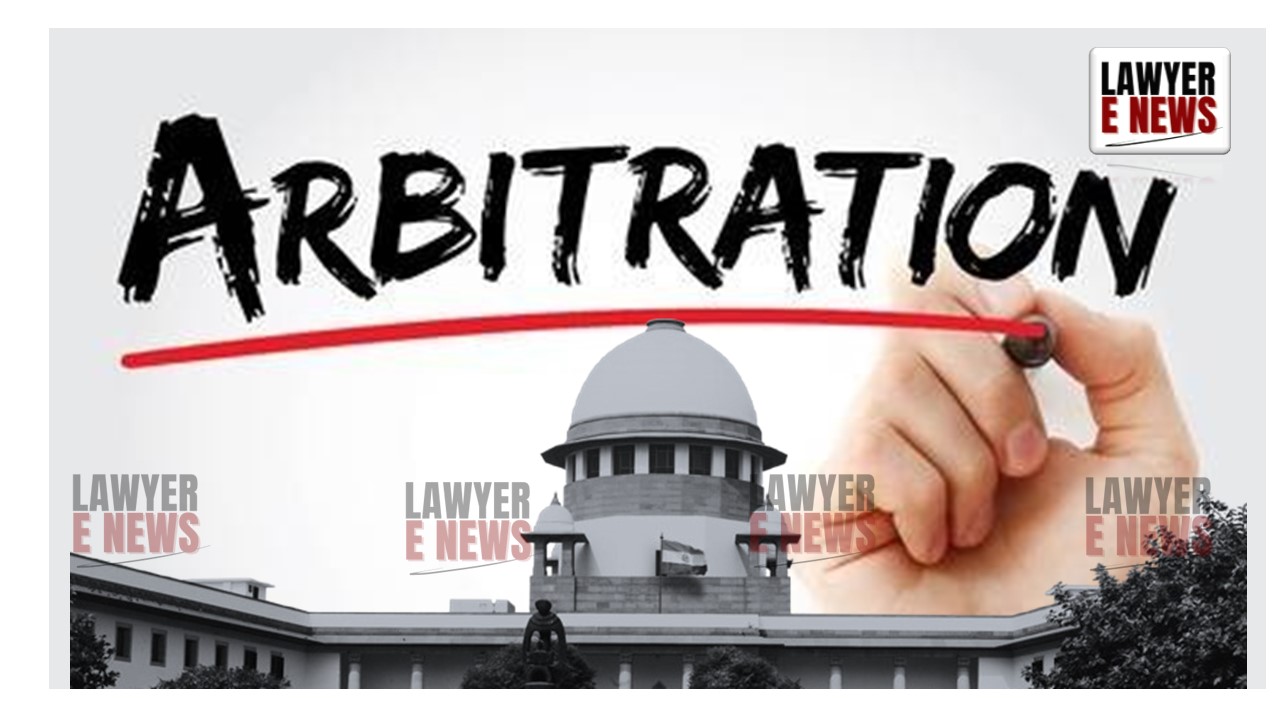-
by sayum
17 February 2026 5:39 AM



“Jurisdictional Pleas Can’t Be Pulled Out of the Drawer Post-Award” — Supreme Court of India reinstating an arbitral award that had been quashed by the Madhya Pradesh High Court. The High Court had set aside the award solely on the ground of lack of jurisdiction under the Madhya Pradesh Madhyastham Adhikaran Adhiniyam, 1983 (MP Act)—a ground which was never raised during the arbitration or in the initial Section 34 challenge.
The Supreme Court emphatically ruled that once a party proceeds with arbitration under the Arbitration and Conciliation Act, 1996, without raising jurisdictional objections at the appropriate stage, it cannot be permitted to turn around post-award and challenge the tribunal’s authority. The Court declared, “Such an objection, raised ex post facto, amounts to approbating and reprobating—a tactic the law does not countenance.”
The dispute arose from a works contract executed in 2005 between M/s Gayatri Projects Ltd. and the Madhya Pradesh Road Development Corporation Ltd. (MPRDC) for road rehabilitation. The contract provided for arbitration under the 1996 Act, and arbitration proceedings were initiated in 2010.
The tribunal passed a unanimous award in July 2011, awarding the contractor Rs. 1.03 crore plus 10% annual interest. The respondent challenged the award under Section 34 of the 1996 Act, but crucially, did not object to the tribunal’s jurisdiction at any stage—either during the arbitration or in the initial challenge.
The jurisdictional objection under the MP Act was introduced only years later, piggybacking on the evolving jurisprudence following the 2018 decision in L.G. Chaudhary (II). The Commercial Court and then the High Court accepted this belated objection, setting aside the award on jurisdictional grounds.
The Court addressed two key issues: whether an arbitral award under the 1996 Act can be set aside solely on the ground that the MP Act applies, when that objection was never raised before the tribunal; and whether its own rulings in L.G. Chaudhary (II) and Lion Engineering conflicted.
Rejecting the High Court’s reasoning, the Supreme Court held:
“If no objection to the jurisdiction of the arbitration was taken at relevant stage, the award may not be annulled only on that ground.”
The Court stressed that the respondent had consciously chosen to proceed under the 1996 Act, participated in the arbitration without protest, and only challenged jurisdiction after an unfavourable award:
“At the time of constitution of the arbitral tribunal, the respondent never objected to the invocation of arbitration under the Act, 1996 and both parties proceeded to nominate their respective co-arbitrators.”
The Court labelled this conduct as an abuse of process:
“Such conduct amounts to waiver under Section 4 of the 1996 Act and cannot be excused. The respondent cannot be permitted to approbate and reprobate.”
No Real Conflict Between ‘Lion Engineering’ and ‘L.G. Chaudhary (II)’:
Addressing the alleged conflict between Lion Engineering (which allowed jurisdictional objections to be raised under Section 34) and L.G. Chaudhary (II) (which denied annulment of awards where jurisdiction was not timely challenged), the Court clarified:
“There exists no direct conflict between the two. Lion Engineering allows a jurisdictional plea to be raised; L.G. Chaudhary (II) clarifies that such plea, if not timely raised, cannot by itself justify setting aside the award.”
The Court emphasized that L.G. Chaudhary (II) carves out a limited exception due to the judicial flux around applicability of the MP Act and the need to preserve finality of awards already rendered:
“Even if L.G. Chaudhary (II) does not refer to Lion Engineering, it cannot be termed per incuriam. The observations were made consciously to create a limited carve-out from Lion Engineering, keeping in mind the judicial divergence.”
Restoring the award and setting aside the High Court’s judgment, the Supreme Court held: “The High Court committed an egregious error. Once the award had been passed and no objection was taken at the relevant stage, it could not have been annulled solely on the ground of lack of jurisdiction.”
The matter was remanded to the Commercial Court, Bhopal, to consider any other objections under Section 34, excluding the jurisdictional one. The Court also directed that its ruling be circulated to all High Courts: “We direct the Registry to circulate a copy of this judgment to all High Courts.”
This judgment reinforces the core principle that jurisdictional objections in arbitration must be raised promptly, else they are deemed waived. Courts cannot allow parties to revive such pleas post-award, especially when they voluntarily participated in the arbitration process.
The ruling serves as a sharp warning against strategic litigation tactics that threaten the finality of arbitral awards. It also harmonizes prior rulings and cements the limited exception doctrine under L.G. Chaudhary (II)—ensuring that belated jurisdictional objections cannot become a backdoor to undoing concluded arbitrations.
As the Court summed up: “Any failure to raise the issue of applicability of the MP Act, 1983 before the arbitral tribunal is not a strong and good reason to permit raising such a plea under Section 34.”
Date of Decision: 15 May 2025
